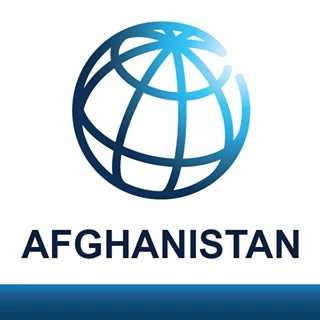Continued international aid, including through the Afghanistan Reconstruction Trust Fund (ARTF), is vital to create better lives for millions of Afghans. This #ProtectTheGains series highlights ARTF results that have made a real difference toward achieving peace and prosperity for the people of Afghanistan.
When President Muhammad Ashraf Ghani first took office in 2014, one of his top priorities was the overhaul of Afghanistan's public procurement to ensure public contracts be awarded and managed transparently and efficiently.
The president's vision to upgrade a traditional procurement system into a progressive marketplace required robust institutions and highly skilled staff, now embodied in the modern public structures: National Procurement Authority (NPA), National Procurement Commission (NPC), and National Procurement Institute (NPI) as a training arm of NPA.
Via these institutions, the government has provided great benefits to Afghan citizens, helped tackle corruption, and supported growth. For example, the procurement reforms considered a margin of up to 25 percent preference to Afghan companies and international companies that have Afghan partners or resident offices in Afghanistan. This aims to further encourage government entities to use domestic products as well as empowering the Afghan private sector. Furthermore, the thresholds for Afghan SMEs have increased, and project award processes and prerequisites are simplified.
Radical reforms to improve public procurement
The National Procurement Authority and National Procurement Commission provide strategic directions, establish reform priorities, and oversee public procurement. Their objective is to ensure that at all stages— need identification, solicitation, pre-solicitation, awards, and contracts— procurement complies with Afghan law and reform priorities.
Procurement reforms have helped the Afghan government save an estimated 66 billion Afghanis ($868 million) in processing national procurement contracts
The reforms mandate regular coordination needs assessment and effective monitoring and evaluation during the entire procurement and contract implementation cycles. Overall, procurement reforms have helped the Afghan government save an estimated 66 billion Afghanis ($868 million) in processing national procurement contracts.
This is no small feat since public procurement is huge in Afghanistan—much more than the country's total private sector procurement. In 2020 alone, Afghanistan will likely spend around 214 billion Afghanis ($2.7 b) - nearly half its entire annual budget - on public procurement dispensed through thousands of contracts . In that effort, and provided they acquire the right skills, procurement staff can help save millions of dollars.
Improving the procurement workforce
One major challenge is that government procurement specialists have only basic public procurement knowledge and need to learn new ones to be more efficient.
The National Procurement Institute (NPI), which teaches globally accepted procurement approaches and techniques, is responsible for educating Afghan procurement specialists. In early 2016, NPI's predecessor, the Procurement Training Center (PTC), had already trained over 5,000 individuals from across Afghanistan , establishing a national talent pool of procurement professionals. In the last four years, with the World Bank's financial support, additional steps have been taken to upgrade the PTC to the NPI.
The National Procurement Institute has invested in an internationally recognized Monitoring and Evaluation (M&E) framework that is founded on the Kirkpatrick model of training evaluation. The findings of the M&E indicate that the training provided by the NPI was highly welcomed and appreciated by course participants.
NPI is committed to delivering ongoing training to 1,400 government employees responsible for public procurement
NPI also works with public entities to determine how procurement personnel were initially recruited and whether their organizational structures are supportive of their work. As part of the procurement reforms, NPI is committed to delivering ongoing training to 1,400 government employees responsible for public procurement at the national and provincial levels , preparing them to ensure that public resources are spent efficiently.
Increasing procurement education can also create a competitive business environment, free from corruption and ensuring a sustainable economy, public service delivery excellence, and public confidence in the government's ability to deliver on its plans.
Responding to COVID-19
With the onset of the COVID-19 pandemic, all procurement training came to a halt. However, the NPI and the National Statistics and Information Authority launched eLearning courses using the Moodle Learning Management System. Through video lectures developed by NPI experts, participants can continue learning at no additional costs.
“I have been to some government and private universities but this has been one of the richest online programs that I have taken so far” says Noorullah a participant of the NPI online training. “I would like to thank all my trainers and the management team for their efforts.”
Mubarez another participant of the NPI online training says: “We now believe that by studying at the NPI, the procurement workforce can play a more effective role in the implementation of the law and rules of procedure and other procurement policies.”
The Institute plans on continuing with these online courses even after the pandemic, along with regular in-class training and other specialized training sessions.


Join the Conversation